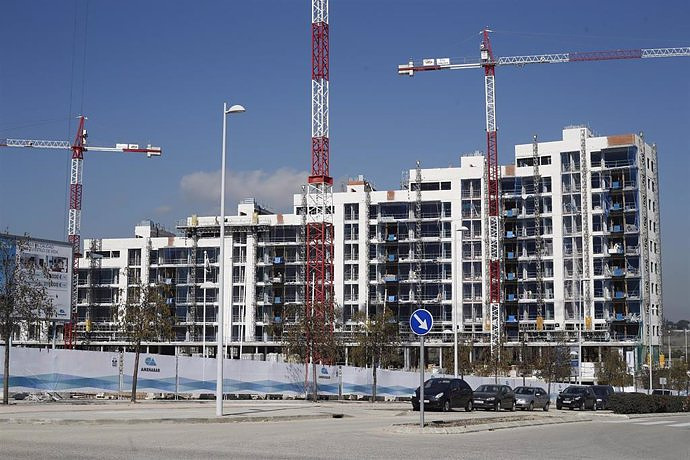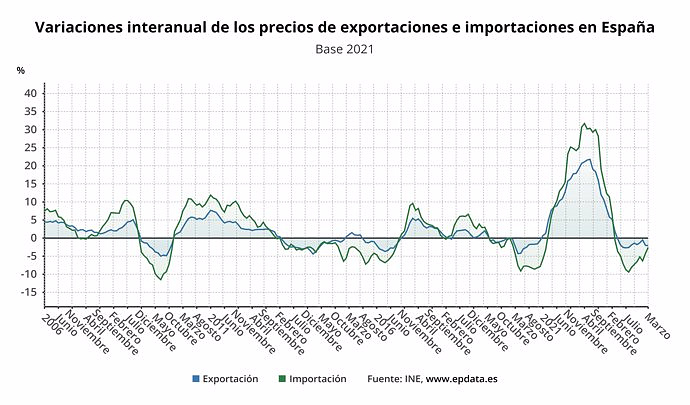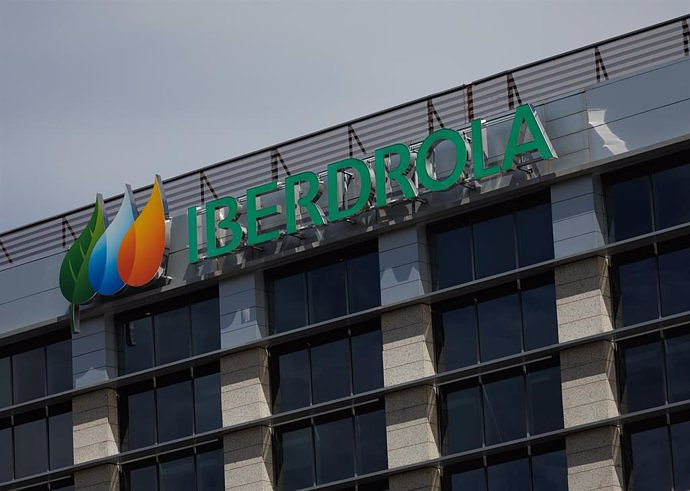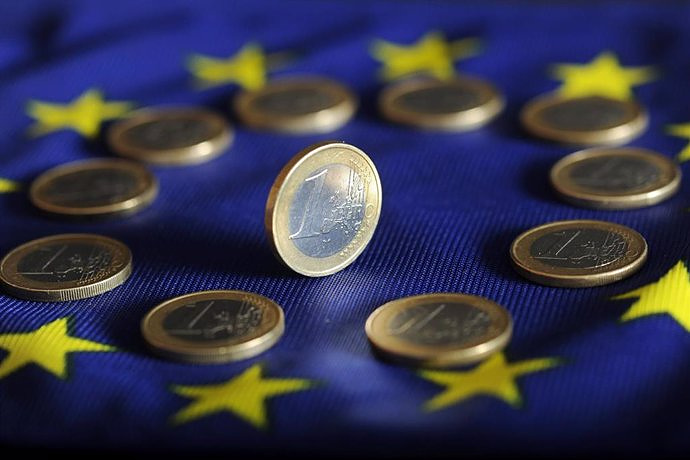It indicates that an extra cost was paid to acquire that material from a Chinese company when the market price was up to 60 times less
MADRID, 24 Ago. (EUROPA PRESS) -
The European Public Prosecutor's Office has decided to open an investigation to see if there was prevarication and embezzlement of European funds in the purchase by the Ministry of Health of 500,000 disposable gowns from a Chinese textile company at the beginning of the pandemic for a price "that would be well above the of market".
In the letter, to which Europa Press has had access, the delegated European prosecutors Laura Pellón and Olga Muñoz explain that this purchase was made from the company Weihai Textile Group Import
The matter has been claimed by this prosecutor's office after the Anti-Corruption Prosecutor's Office learned that this purchase was made entirely with European funds, FEDER funds. This was one of the emergency contracts of the Executive of Pedro Sánchez that the Popular Parliamentary Group of Madrid took to Anticorruption in April 2022.
Now, the prosecutors recall that the object of the initial complaint and the investigation "are the alleged irregularities committed in the award of the contract for a price apparently much higher than the market price, generating the payment of an alleged unjustified overprice, the amount of which has been detailed identified by the complainant.
In the prosecutors' brief, advanced by ABC, it is recalled that the irregularities denounced by the PP would consist, on the one hand, in the failure to verify whether the company was related to the object of the contract --the gowns-- and whether had sufficient economic solvency and, on the other hand, in the existence of an extra cost as each unit was paid at a price of 18.50 dollars (16.7 euros), a price much higher than that paid on the same dates for the same product and the same contracting entity to the Spanish companies Mediline International Iberia SL (0.3263 euros) and Suministros Hospitalarios SA (0.2783 euros).
According to the PP of Madrid, this meant paying an extra cost of between 52 and 60 times in relation to the market price. Health allocated the amount of 10.1 million euros to the purchase of these gowns, while if it had given the contract to one of the Spanish companies, the price would have been between 139,150 euros and 163,150 euros (VAT included). For this reason, the prosecutors explain, "the existence of an extra cost of more than 10,000,000 euros (more than 625%) is expressly denounced".
In addition, the European Public Prosecutor's Office puts the magnifying glass on the justifying report of the emergency contracting to explain that another amount of 842,364.08 euros was added to the price of the gowns for "fees, tariffs and another 10%", so that the total paid to the Chinese company was more than 11 million euros.
"There is no justification, clarification or documentary support in the report on this last amount, therefore not allowing to determine what specific services were included in that payment," the prosecutors point out.
The prosecutors also indicate that at the time of awarding the contract, any circumstance about the Weihai company was omitted, including its address, "only reflecting that it would be located in Spain." But, they emphasize that, "examining the digital file sent, it is clear that the Administration knew all the identifying data of the company since the pro-forma invoice was sent by it (...) in which its address in Shichang was identified Road 16, Weihai City, Shandong, China."
They point out that this address was not published until May 4, 2020 in the BOE, when it was corrected, and they add that on that date "not only had the contract already been formalized, but the price and , according to the invoice, the contract should have been executed in full (deliveries of 100,000 gowns per week from April 2)".
Another detail of the contract that draws the attention of the prosecutors is that it was signed by the company and Health on March 30, 2020 without INGESA being recorded as the awarding body, despite the fact that at that time it was the one that materialized and concluded the purchase procedure. .
In its brief, the European Public Prosecutor's Office dedicates an extensive point of the legal grounds to explain why it considers that the matter falls under its jurisdiction and not Anti-Corruption. Remember that in the European 'PIF Directive' the crime of embezzlement of EU funds falls within the criminal offenses that affect the financial interests of the Union.
And regarding the possible crime of prevarication, it indicates that if both are "inextricably linked", as it considers to be the case, the European Public Prosecutor's Office can exercise its competence provided that the embezzlement is sanctioned with a greater penalty.
"In short, given that the crime of embezzlement carries with it a penalty that is notoriously higher than that corresponding to the crime of prevarication and that both are inextricably linked, the European Public Prosecutor's Office is materially competent to hear all the facts and crimes investigated in the Investigation Proceedings 13/2022", he points out.

 Exploring Cardano: Inner Workings and Advantages of this Cryptocurrency
Exploring Cardano: Inner Workings and Advantages of this Cryptocurrency Seville.- Economy.- Innova.- STSA inaugurates its new painting and sealing hangar in San Pablo, for 18 million
Seville.- Economy.- Innova.- STSA inaugurates its new painting and sealing hangar in San Pablo, for 18 million Innova.- More than 300 volunteers join the Andalucía Compromiso Digital network in one month to facilitate access to ICT
Innova.- More than 300 volunteers join the Andalucía Compromiso Digital network in one month to facilitate access to ICT Innova.-AMP.- Ayesa acquires 51% of Sadiel, which will create new technological engineering products and expand markets
Innova.-AMP.- Ayesa acquires 51% of Sadiel, which will create new technological engineering products and expand markets Nadal is still alive and exciting in Madrid
Nadal is still alive and exciting in Madrid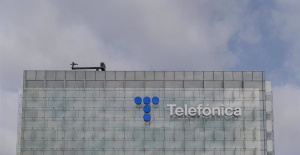 The Treasury injected another 500 million into the SEPI in March to purchase Telefónica shares
The Treasury injected another 500 million into the SEPI in March to purchase Telefónica shares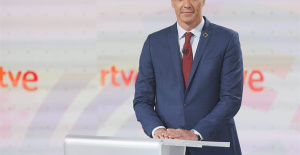 The complaints from ERC and PP against Sánchez's interview do not reach the JEC in time, which did not consider suspending it
The complaints from ERC and PP against Sánchez's interview do not reach the JEC in time, which did not consider suspending it Occupancy in Spain for the May long weekend exceeds 80%, with Andalusia and the Canary Islands as preferred destinations
Occupancy in Spain for the May long weekend exceeds 80%, with Andalusia and the Canary Islands as preferred destinations How Blockchain in being used to shape the future
How Blockchain in being used to shape the future Not just BTC and ETH: Here Are Some More Interesting Coins Worth Focusing on
Not just BTC and ETH: Here Are Some More Interesting Coins Worth Focusing on They create a bank of machinery sounds to prevent breakdowns through artificial intelligence
They create a bank of machinery sounds to prevent breakdowns through artificial intelligence UPV students build a prototype of a wooden house to move to Equatorial Guinea
UPV students build a prototype of a wooden house to move to Equatorial Guinea The UA opens the call for the Impulso 2024 Awards for the best innovative business initiatives
The UA opens the call for the Impulso 2024 Awards for the best innovative business initiatives ALI, virtual assistant from Alicante, internationally recognized by the OECD
ALI, virtual assistant from Alicante, internationally recognized by the OECD A million people demonstrate in France against Macron's pension reform
A million people demonstrate in France against Macron's pension reform Russia launches several missiles against "critical infrastructure" in the city of Zaporizhia
Russia launches several missiles against "critical infrastructure" in the city of Zaporizhia A "procession" remembers the dead of the Calabria shipwreck as bodies continue to wash up on the shore
A "procession" remembers the dead of the Calabria shipwreck as bodies continue to wash up on the shore Prison sentences handed down for three prominent Hong Kong pro-democracy activists
Prison sentences handed down for three prominent Hong Kong pro-democracy activists ETH continues to leave trading platforms, Ethereum balance on exchanges lowest in 3 years
ETH continues to leave trading platforms, Ethereum balance on exchanges lowest in 3 years Investors invest $450 million in Consensys, Ethereum incubator now valued at $7 billion
Investors invest $450 million in Consensys, Ethereum incubator now valued at $7 billion Alchemy Integrates Ethereum L2 Product Starknet to Enhance Web3 Scalability at a Price 100x Lower Than L1 Fees
Alchemy Integrates Ethereum L2 Product Starknet to Enhance Web3 Scalability at a Price 100x Lower Than L1 Fees Mining Report: Bitcoin's Electricity Consumption Declines by 25% in Q1 2022
Mining Report: Bitcoin's Electricity Consumption Declines by 25% in Q1 2022 Oil-to-Bitcoin Mining Firm Crusoe Energy Systems Raised $505 Million
Oil-to-Bitcoin Mining Firm Crusoe Energy Systems Raised $505 Million Microbt reveals the latest Bitcoin mining rigs -- Machines produce up to 126 TH/s with custom 5nm chip design
Microbt reveals the latest Bitcoin mining rigs -- Machines produce up to 126 TH/s with custom 5nm chip design Bitcoin's Mining Difficulty Hits a Lifetime High, With More Than 90% of BTC Supply Issued
Bitcoin's Mining Difficulty Hits a Lifetime High, With More Than 90% of BTC Supply Issued The Biggest Movers are Near, EOS, and RUNE during Friday's Selloff
The Biggest Movers are Near, EOS, and RUNE during Friday's Selloff Global Markets Spooked by a Hawkish Fed and Covid, Stocks and Crypto Gain After Musk Buys Twitter
Global Markets Spooked by a Hawkish Fed and Covid, Stocks and Crypto Gain After Musk Buys Twitter Bitso to offset carbon emissions from the Trading Platform's ERC20, ETH, and BTC Transactions
Bitso to offset carbon emissions from the Trading Platform's ERC20, ETH, and BTC Transactions Draftkings Announces 2022 College Hoops NFT Selection for March Madness
Draftkings Announces 2022 College Hoops NFT Selection for March Madness

